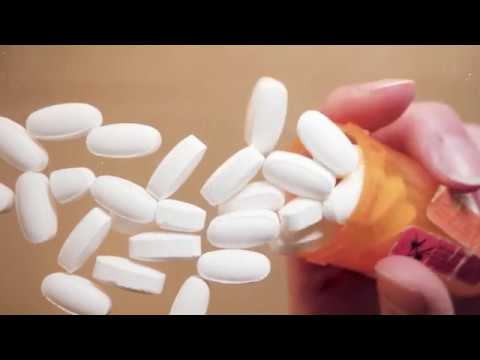Opioid Addiction: A Growing Crisis
Opioid addiction is wreaking havoc across the United States, gripping communities in a devastating hold. The harrowing numbers speak for themselves—over 70,000 opioid-related overdose deaths were recorded in 2023 alone. This national emergency affects not just individuals but families and entire communities. To better address this urgent issue, it’s crucial to delve into the intricate nature of opioid addiction and the perilous behaviors that often accompany it.
The Neurological Grip of Opioid Addiction
Opioids such as oxycodone, hydrocodone, and fentanyl are profoundly addictive due to their interaction with the brain’s reward system. These substances bind to opioid receptors, giving a sense of euphoria and pain relief. However, extended use can significantly tweak the brain’s chemistry, making it monumentally tough for individuals to escape dependency.
Case Study: Purdue Pharma and OxyContin
Let’s take a look at Purdue Pharma and their notorious drug, OxyContin. Back in the late 1990s, Purdue’s aggressive marketing downplayed the addiction risks, misleading countless people. Because of this misinformation, widespread misuse ensued, contributing to today’s opioid epidemic. This case starkly illustrates how misleading data about opioids can have catastrophic outcomes.
Behavioral Manifestations of Opioid Addiction
As addiction tightens its grip, people often start to engage in risky behaviors. These actions not only compromise their well-being but also strain relationships and destabilize entire communities.
1. Prescription Shopping
One early sign of opioid addiction is prescription shopping—visiting multiple doctors to obtain more prescriptions. This deceitful practice is not just dangerous but also illegal.
Example: In 2022, John Kapoor, founder of Insys Therapeutics, was sentenced to 5.5 years in prison for his role in a scheme to bribe doctors to prescribe Subsys, a fentanyl spray.
2. Illicit Drug Use
Many individuals addicted to prescription opioids turn to illegal drugs like heroin when their prescriptions run out or become too costly. This switch increases the risk of overdose dramatically.
Statistic: According to the National Institute on Drug Abuse (NIDA), approximately 80% of people who use heroin first misused prescription opioids.
3. Criminal Behavior
Addiction can push individuals into engaging in criminal activities to sustain their habits. Theft, burglary, and even violent crimes can become part of the addict’s desperate life.
Example: In 2023, a study by the Bureau of Justice Statistics found that 65% of individuals incarcerated for property crimes reported regular opioid use before their arrests.
Societal Impact of Risky Behaviors
The ripple effects of opioid addiction extend far beyond the individual, influencing families, communities, and society at large.
Family Dynamics
Dealing with an addicted family member places immense strain on familial relationships. Families often oscillate between enabling behaviors and tough love, which complicates both the addict’s recovery and family cohesion.
Expert Insight: Dr. Lisa Heitler, a leading psychologist in addiction treatment, states, “Families often waver between feelings of guilt and anger, hindering both the addict’s recovery and the family’s ability to stay cohesive.”
Economic Burden
The financial toll of opioid addiction is staggering. From healthcare costs to lost productivity and criminal justice expenses, the economic impact is colossal.
Data Point: The Council of Economic Advisers estimated that the financial cost of the opioid crisis exceeded $800 billion annually in 2022 in the United States.
Innovative Approaches to Addressing Opioid Addiction
Dealing with the multifaceted nature of opioid addiction is the first step in tackling the crisis. Here are some promising strategies to help mitigate the impact.
Medication-Assisted Treatment (MAT)
Medication-Assisted Treatment utilizes medications alongside counseling and behavioral therapies. Drugs like methadone, buprenorphine, and naltrexone can reduce withdrawal symptoms and the risk of relapse.
Success Story: Vermont’s “Hub and Spoke” model integrates MAT with comprehensive care and has shown a significant drop in opioid-related deaths since its implementation.
Community Programs
Grassroots movements and community-based programs offer crucial support for those wrestling with addiction. Organizations like Shatterproof and Mothers Against Addiction are continually advocating for better policies and providing vital support networks.
Policy Reform
Effective legislation can be a game-changer in combating opioid misuse. Tighter regulation of prescription practices, improved screening methods, and accessible treatment options are critical.
Current Development: The 2023 enactment of the Comprehensive Addiction Resources Emergency (CARE) Act has directed substantial funds toward expanding addiction treatment and support services nationwide.
A Call to Collective Action
Opioid addiction is a societal scourge that demands a multi-pronged approach. Awareness and education must be ramped up, and robust support systems must be put in place. With continuous innovation and compassion, stemming the tide of opioid addiction and bringing hope to affected individuals is entirely possible. Together, we can make a meaningful difference—let’s not wait any longer.
Feel free to share this article to help others understand the depths of opioid addiction and its dangerous behaviors, and visit Mothers Against Addiction for additional resources and support. Remember, we are in this together, and every step counts.
Opioid Addiction: Engaging Facts and Trivia
Opioid addiction is a challenging issue affecting countless individuals and their families. However, understanding its complexities can help us better support our loved ones. Here are some intriguing facts and trivia to shed light on this critical topic.
The Scope and Impact
Opioid addiction has taken a significant toll on communities. Did you know that the crisis has even impacted high-profile cases like those involving public figures such as John Ellison, who dedicated efforts to opioid reduction? Opioid addiction is not confined to any one demographic; it affects people from all walks of life, including stories like Nicholas Bostic, who bravely risks his life to save others despite the odds against him.
The Risky Behaviors
Opioid addiction changes brain function, leading to compulsion and risky behaviors. Substance abuse often intertwines with other harmful habits, such as Alcoholism, further complicating recovery efforts. The brain’s reward system is heavily impacted by opioids, which can alter judgment and risk perception. Interestingly, the debilitating effects of substance abuse are akin to the unpredictability many feel when asking, “will interest rates go up?” The uncertainty can feel overwhelming, making effective support systems critical.
Support and Recovery
Understanding the mechanisms behind opioid addiction can lead to more compassionate support for those struggling. Various pathways, much like calculating the land survey cost for a property, need to be evaluated meticulously for a tailored approach. Engaging with organizations such as Mothers Against Addiction, which provides resources on issues like Drug addiction and Substance abuse, can be vital for families looking for guidance.
To put things in perspective, the opioid crisis is something we can all learn about and from. Just like reminiscing about a time gone by when visiting old music stores like Sam Goody, we can reflect on how societal changes impact us in ways we might not initially see. The collective understanding and support can make a profound difference in combating opioid addiction and aiding recovery.

How do opioid addicts behave?
Opioid addicts often engage in reckless behavior, much like those addicted to alcohol. This can include dangerous activities like swimming or driving while high, using machinery unsafely, or having risky sexual encounters.
What is the most common cause of opioid addiction?
A history of substance abuse, depression or other mental health disorders, childhood abuse or neglect, and certain impulsive or thrill-seeking personality traits are common factors that can lead to opioid addiction.
How can opioids affect your mental health?
Opioids can mess with your mental health by triggering your brain to release endorphins, which both dull pain and make you feel euphoric. This can lead to addiction because the brain starts craving those feel-good chemicals.
What is used to treat opioid addiction?
Medications like methadone, buprenorphine, and naltrexone are commonly used to treat opioid addiction. They help reduce withdrawal symptoms and cravings by targeting the same brain areas affected by opioids.
What are the 4 most common signs of opioid abuse?
Common signs of opioid abuse include drowsiness, changes in sleep patterns, weight loss, and frequent flu-like symptoms.
What are the long-term effects of opioid use?
Long-term opioid use can lead to lasting brain changes, increased tolerance, physical dependence, and higher risk of overdose.
How long does it take for a person to get addicted to opioids?
The timeline for getting addicted to opioids can vary from person to person, but it can start to happen in just a few days to weeks of regular use.
Who is most likely to get addicted to opioids?
Individuals with a history of substance abuse, mental health issues, childhood trauma, or certain impulsive or sensation-seeking personalities are most likely to get addicted to opioids.
Who is at highest risk for opioid addiction?
People at the highest risk for opioid addiction include those with a past of substance abuse, mental health disorders, childhood abuse or neglect, and personality traits like impulsivity and thrill-seeking.
What are the main effects of opioids on a person’s mind?
Opioids affect the mind by stimulating the release of endorphins, resulting in pain relief and intense euphoria. This makes them highly addictive because the brain wants to keep experiencing those pleasurable feelings.
How do opioids affect you socially?
Socially, opioid use can lead to withdrawing from family and friends, neglecting responsibilities, and engaging in risky behaviors, often damaging important relationships and social standing.
How addictive is oxycodone?
Oxycodone is very addictive because it acts on the brain’s reward centers, quickly leading to dependence and cravings.
Do people recover from opioid addiction?
Yes, people can and do recover from opioid addiction. Recovery often involves a combination of medication, counseling, support groups, and lifestyle changes.
Why is opioid addiction so hard to overcome?
Overcoming opioid addiction is extremely hard because these drugs change the brain’s chemistry, creating powerful cravings and withdrawal symptoms that are tough to battle.
What’s the best way to combat the opiate addiction problem?
Combating the opiate addiction problem requires a multi-faceted approach that includes better access to treatment, education, preventive measures, and support for those affected.
How do opioids affect Behaviour?
Opioids can affect behavior by causing drowsiness, confusion, mood swings, and impaired judgment. Regular use often leads to recklessness and risky actions.
What behaviors are controlled by the opioid system?
The opioid system controls behaviors related to pain relief, pleasure, and reward, which is why these drugs are both effective for pain management and highly addictive.
What are the behaviors of addicts?
Addicts often display behaviors such as lying, stealing, social withdrawal, and neglect of responsibilities to maintain their drug use.
What are the psychosocial behavior of drug addicts?
Psychosocial behaviors of drug addicts can include isolation, strained relationships, decreased work or school performance, and engaging in risky or criminal activities.




























